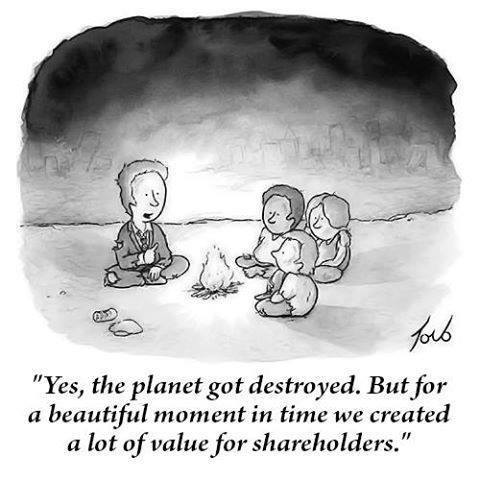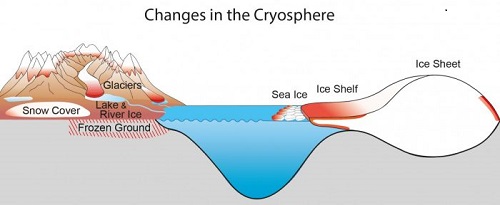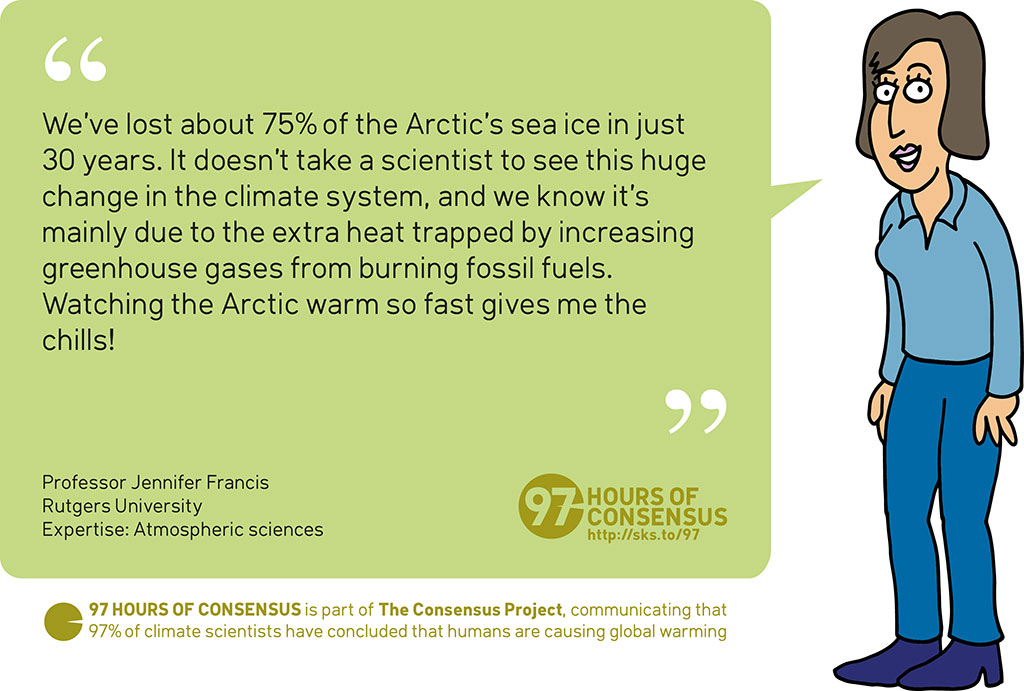
A Blow to the Gut... A Response... Toon of the Week... La Niña Update... Graphic of the Week... SkS in the News... SkS Spotlights... Coming Soon on SkS... Poster of the Week... SkS Week in Review... 97 Hours of Consensus...
Donald Trump is seeking quick ways of withdrawing from a global agreement to limit climate change, a source on his transition team said, defying widening international backing for the plan to cut greenhouse gas emissions.
Since the U.S. President-elect was chosen, governments ranging from China to small island states have reaffirmed support for the 2015 Paris Agreement at 200-nation climate talks running until Nov. 18 in Marrakesh, Morocco.
Trump, who has called global warming a hoax and has promised to quit the Paris Agreement, was considering ways to bypass a theoretical four-year procedure for leaving the accord, according to the source, who works on Trump's transition team for international energy and climate policy.
"It was reckless for the Paris agreement to enter into force before the election" on Tuesday, the source told Reuters, speaking on condition of anonymity. The Paris Agreement won enough backing for entry into force on Nov. 4.
Trump looking at fast ways to quit global climate deal: source by Valerie Volcovici & Alister Doyle, Reuters, Nov 12, 2016
NERMEEN SHAIKH: Bill, you’ve also said that the damage from this election will be measured in geologic time.
BILL McKIBBEN: That’s right. The Trump presidency comes at a moment when we could least afford it. It’s not like we were winning the climate battle before, you know, but we were beginning to make at least a little progress. There was beginning to be the kind of ramp-up of renewable and clean energy in this country and around the world. The world managed a year ago at Paris to do something, anyway, for the first time, about climate change. Now we’re going to hit not a pothole, but a ditch in the road. And it’s not as if—I mean, the thing to remember about climate change is it’s not as if we can just pick up four years from now where we left off. Physics is our enemy, and it imposes a difficult time limit here. We don’t have any more presidential terms to waste. So we’re going to have to figure out, as a nation and, maybe more importantly, as a planet, how to work around Trump, to one degree or another.
Bill McKibben: Trump's Presidency Comes When the Warming World Can Least Afford It by Nermeen Shaikh & Amy Goodman, Democarcy Now!, Nov 10, 2016

After a few months of on-again, off-again prospects for a La Niña in 2016-17, NOAA pulled the trigger on Thursday. In its monthly El Niño/Southern Oscillation (ENSO) Diagnostic Discussion issued on Thursday, NOAA placed its alert system into La Niña Advisory mode. A La Niña Advisory means that La Niña conditions are now present and expected to continue--in this case, through winter 2016-17.
Weak La Niña Expected to Persist into 2017 by Bob Henson, WonderBlog, Weather Underground, Nov 11, 2016

Schematic summary of the dominant observed variations in the cryosphere. [Credit: fig 4.25 from IPCC (2013) ].
While the first week of COP22 – the climate talks in Marrakech – is coming to an end, the recent election of Donald Trump as the next President of the United States casts doubt over the fate of the Paris Agreement and more generally the global fight against climate change.
In this new political context, we must not forget about the scientific evidence of climate change! Our figure of the week, today summarises how climate change affects the cryosphere, as exposed in the latest assessment report of the Intergovernmental Panel on Climate Change (IPCC, 2013, chapter 4)
Image of the Week – Climate Change and the Cryosphere by Sophie Berger, Cryosphere Division, EGU Blogs, Nov 11, 2016
Climate Change: Interview with Dr. (Ben) Santer by Jeff Garberson, The Independent (Alameda County, CA), includes the following exchange:
Q. Are there good resources for members of the public to become more knowledgeable about climate?
A. I recommend three. First, the U.S. National Academy of Sciences and the UK Royal Society produced a document called Climate Change: Evidence and Causes. Next, an Australian, John Cook, has a website called Skeptical Science with beginning, intermediate and advanced levels of discussion. And finally, the Third National Climate Assessment issued by the U.S. in 2014. Any and all of these are excellent resources.
Climate science’s long history matters—and so does the history of news reporting about it by Steven T. Corneliussen (Physics Today) includes:
Revkin isn’t alone in seeking to fill out the picture of public discussion of climate science’s long—and painstakingly established—history. In 2007, science historian Naomi Oreskes contributed a Washington Post op-ed headlined “The long consensus on climate change.” Spencer Weart of the American Institute of Physics engages the issue in The Discovery of Global Warming, his “hypertext history of how scientists came to (partly) understand what people are doing to cause climate change.” In 2015, a Science magazine editorial examined the symposium “Climate Science, 50 Years Later,” as did the blog Skeptical Science.
The third link embedded in the above is to the SkS article, Scientists warned the US president about global warming 50 years ago today by Dana Nuccitelli.
International Center for Biosaline Agriculture (ICBA)
ICBA is an international, non-profit agricultural research center established in 1999 through the visionary leadership of the Islamic Development Bank (IDB), the Organization of the Petroleum Exporting Countries (OPEC) Fund, the Arab Fund for Economic and Social Development (AFESD), and the Government of the United Arab Emirates (UAE).
Originally focused on the problems of salinity and using saline water for irrigated agriculture, ICBA has evolved over the years into a world-class modern research facility with a team of international scientists conducting applied research and development to improve agricultural productivity and sustainability in marginal and saline environments.
In 2013, the Center developed a new strategic direction that takes innovation as a core principle and the Center's multi-pronged approach to addressing the closely linked challenges of ensuring water, environment, income, and food security, includes research innovations in the assessment of natural resources, climate change adaptation, crop productivity and diversification, aquaculture and bio-energy and policy analysis.
Currently, ICBA is working on a number of technology developments, including the use of conventional and non-conventional water (such as saline, treated wastewater, industrial water, agricultural drainage, and seawater), water and land management technologies and remote sensing and modeling for climate change adaptation.
Improving the generation and dissemination of knowledge is an important strategic objective of ICBA and the Center is focusing on establishing itself as a knowledge hub on sustainable management and use of marginal resources for agricultural production and environmental protection in marginal and saline environments. With the help of its partners, ICBA innovates, builds human capital, and encourages learning that is fundamental to change.


Quote provided via email
High resolution JPEG (1024 pixels wide)
Posted by John Hartz on Sunday, 13 November, 2016
 |
The Skeptical Science website by Skeptical Science is licensed under a Creative Commons Attribution 3.0 Unported License. |